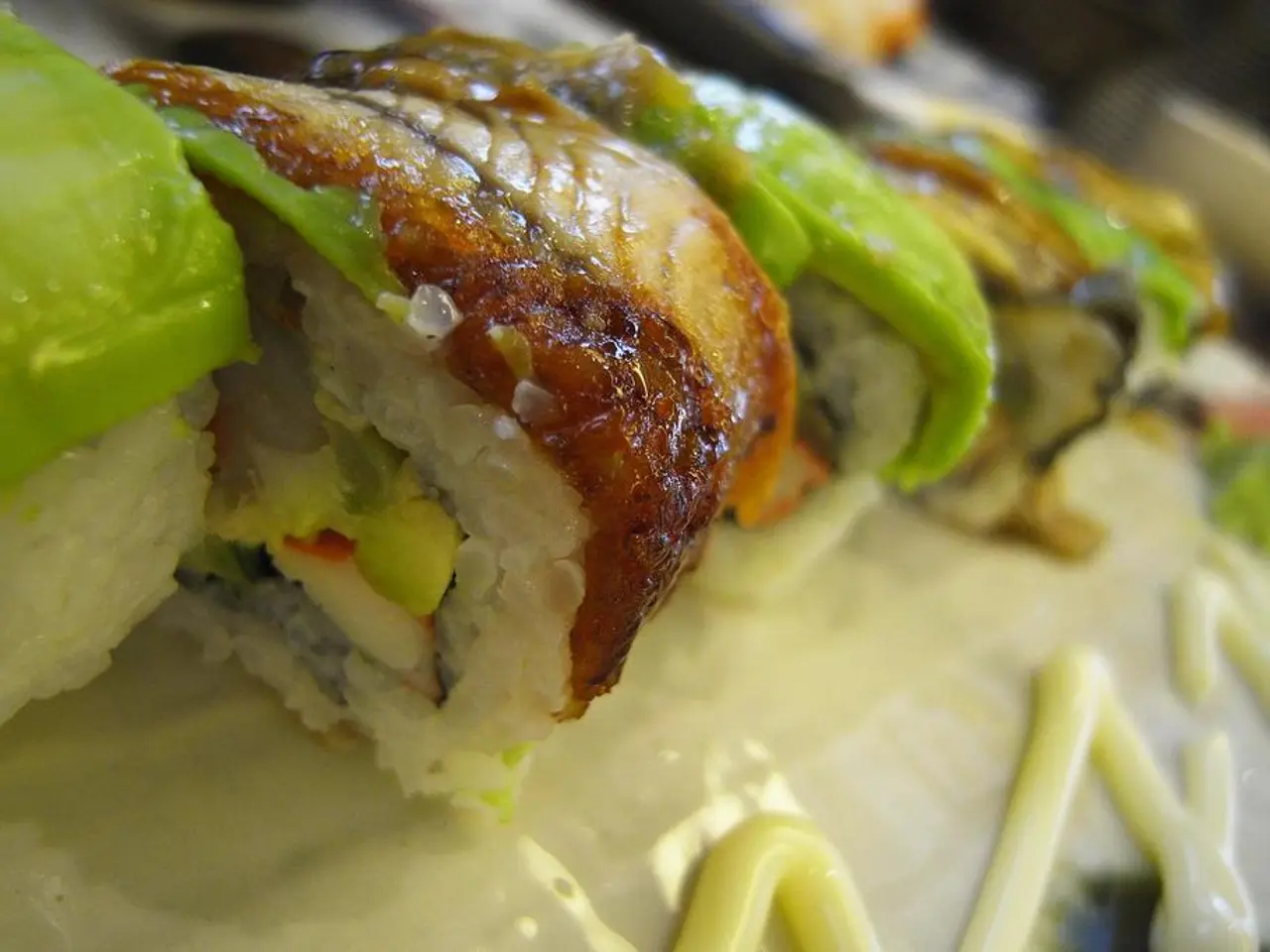Diabetic-Friendly Foods Rich in Fiber: Bites, Meals, and Additional Options
The Benefits of a High-Fiber Diet for Diabetes Management
A high-fiber diet can significantly improve blood glucose control for individuals with diabetes. By slowing the absorption of carbohydrates, this diet helps to reduce blood sugar spikes and maintain more stable blood sugar levels [2][3][4].
The Role of Fiber in Diabetes Management
Fiber, a crucial nutrient found in plant-based foods, plays a vital role in diabetes management. There are two types of fiber: soluble and insoluble.
Soluble fiber absorbs water and forms a gel in the digestive tract, slowing digestion and carbohydrate absorption [3]. This results in reduced post-meal blood sugar spikes and lower fasting blood sugar and insulin levels.
Insoluble fiber, while its mechanism is less directly related to slowing absorption, also contributes to reductions in blood sugar levels [3].
Incorporating fiber-rich foods into meals, especially before refined carbohydrates, can help control appetite and aid in weight management [1]. Diets high in fiber-rich grains like oats have been found to correlate with significantly lower HbA1c and fasting glucose in diabetics [4].
Foods Rich in Fiber for Diabetes
For individuals with diabetes, incorporating the following foods rich in fiber into their diet can help manage blood sugar levels: - Non-starchy vegetables - Beans and legumes - Whole grains such as oats, barley, and whole wheat - Fruits with edible skins or seeds - Nuts and seeds
Eating fiber-rich foods with meals and sequencing fiber intake before refined carbs helps shape more stable blood sugar responses [1][3].
Recommended Fiber Intake for Diabetes
The American Diabetes Association recommends that people with diabetes aim for 22-35 grams of fiber per day [5]. Foods labeled "high" in fiber must contain at least 20% of a person's daily recommended value of fiber, or at least 5 grams in the defined serving.
Examples of High-Fiber Foods - A half-cup of rolled oats contains approximately 5 grams of fiber. - One cup of berries contains over 8 grams of fiber. - A medium artichoke contains about 13.5 grams of fiber. - A 100-g serving of avocado contains approximately 8.5 grams of fiber. - One medium banana contains about 3 grams of fiber. - A 1-ounce serving of almonds provides about 3.5 grams of fiber. - Chia seeds contain about 5 grams of fiber per tablespoon. - Hummus, made with chickpeas, provides approximately 15 grams of fiber per cup. - Brussels sprouts contain approximately 8 grams of fiber per cup. - 1 cup of air-popped popcorn provides about 3.5 grams of fiber.
In conclusion, a diet rich in both soluble and insoluble fiber can improve blood glucose control, reduce HbA1c, and support overall diabetes management. Including a variety of fiber-rich plant foods like vegetables, legumes, and whole grains is beneficial for people with diabetes [2][3][4].
- Treatment seekers with diabetes can enhance their blood glucose control by adopting a high-fiber diet, as it slows carbohydrate absorption and reduces post-meal blood sugar spikes [2][3][4].
- With two types, soluble and insoluble, fiber plays a significant role in diabetes management by influencing blood sugar levels [3].
- Integrating fiber-rich foods like non-starchy vegetables, beans, whole grains, fruits with edible skins or seeds, nuts, and seeds into meals can help diabetes patients manage their blood sugar levels [1][3].
- In accordance with the American Diabetes Association, aiming for 22-35 grams of fiber per day is recommended to support overall diabetes management [5].
- Incorporating high-fiber foods such as oats, berries, artichokes, avocados, bananas, almonds, chia seeds, hummus, Brussels sprouts, and popcorn into one's diet can improve blood glucose control and support diabetes management [2][3][4].




